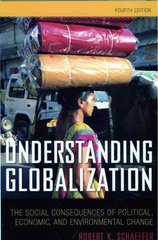Question
Let us consider a world economy that consists of two countries as major players: the U.S. and China. The U.S. is relatively capital abundant while
Let us consider a world economy that consists of two countries as major players: the U.S. and China. The U.S. is relatively capital abundant while Chinais relatively labor abundant. Suppose that producing textiles requires labor (L) andcapital (K) and it is relatively intensive in labor in the production process comparedto the other major industry, automobiles. The production technology in each industrydemonstrates constant returns to scale with diminishing returns of marginal productof each factor and factor complementarity. Both countries share the same production technologies and consumers in all countries have identical homothetic preferences.Assume that capital can be reallocated across industries without cost. For part (i)and part (ii), support your answers by referencing the results derived from the relevantframework in endowment-based models. You do not need to prove it.
- According to the predictions of the specific factors model, who will bein favor of the import tariffs or quotas in the U.S. in the short run where workerscannot move freely across sectors?
- Who will be in favor of the import tariffs or quotas in the U.S.in the long run where workers can move freely across sectors? What is the relevant theorem in factor endowment models of trade that speaks to this prediction?
Step by Step Solution
There are 3 Steps involved in it
Step: 1

Get Instant Access to Expert-Tailored Solutions
See step-by-step solutions with expert insights and AI powered tools for academic success
Step: 2

Step: 3

Ace Your Homework with AI
Get the answers you need in no time with our AI-driven, step-by-step assistance
Get Started


